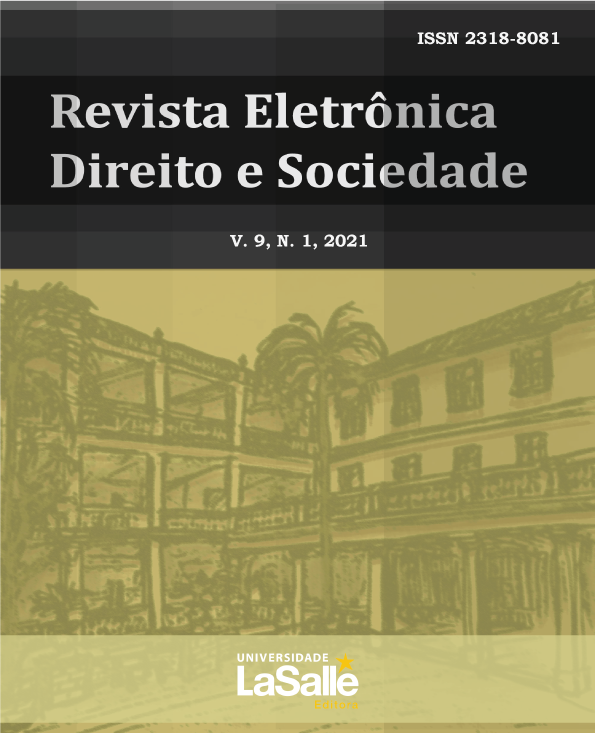Criminal drug policy: affront to fundamental rights and disproportionality under the argument of health protection
DOI:
https://doi.org/10.18316/redes.v9i1.6521Keywords:
Fundamental Rights, Risk Society, Criminal Drug PolicyAbstract
In people’s minds, armed and bare-footed traffickers are responsible for the feeling of insecurity that grips urban centers, especially the larger ones. Our risk society tends to make fundamental rights and guarantees more flexible in favor of an overvaluation of security. With regard to drugs, the doctrine points to offenses against several constitutional principles: isonomy, freedom, individual autonomy, intimacy, private life. Through a review of the bibliography, the aim of this article is to verify the hypothesis of non-conformity of criminal drug policy in the face of constitutional principles such as life, freedom, autonomy, private life and proportionality. It concludes that there is an affront to fundamental rights and guarantees present in the Brazilian Constitution of 1988, indicating the need to implement measures for decarcerization, decriminalization and legalization, as well as those that are underway in other countries.
Downloads
Published
Issue
Section
License
Authors who submit their manuscripts for publication in the “REDES” Magazine agree to the following terms:
The authors claim to be aware that they retain copyright by giving “REDES” the right to publish.
The authors declare to be aware that the work submitted will be licensed under the Creative Commons Non-Commercial Attribution License which allows article sharing with acknowledgment of authorship and publication in this journal.
The authors declare to be aware that by virtue of the articles published in this journal have free public access.
The authors declare, under the penalty of the law, that the text is unpublished and original and that they are aware that plagiarism has been identified, plagiarized authors will be informed - willingly, to take legal action in the civil and criminal sphere - and, plagiarists will have their access to the magazine blocked.
The authors state that - in case of co-authoring - all contributed significantly to the research.
Authors are obliged to provide retractions and (or) corrections of errors in case of detection.
The authors are obliged not to publish the text submitted to “REDES” in another electronic journal (or not).
The Electronic Journal Law and Society - REDES - is licensed under a Creative Commons License. Attribution-NonCommercial 4.0 International.Based on work available at "http://revistas.unilasalle.edu.br/index.php/redes/about/submissions#copyrightNotice".
Permissions in addition to those granted under this license may be available at http://creativecommons.org/.

